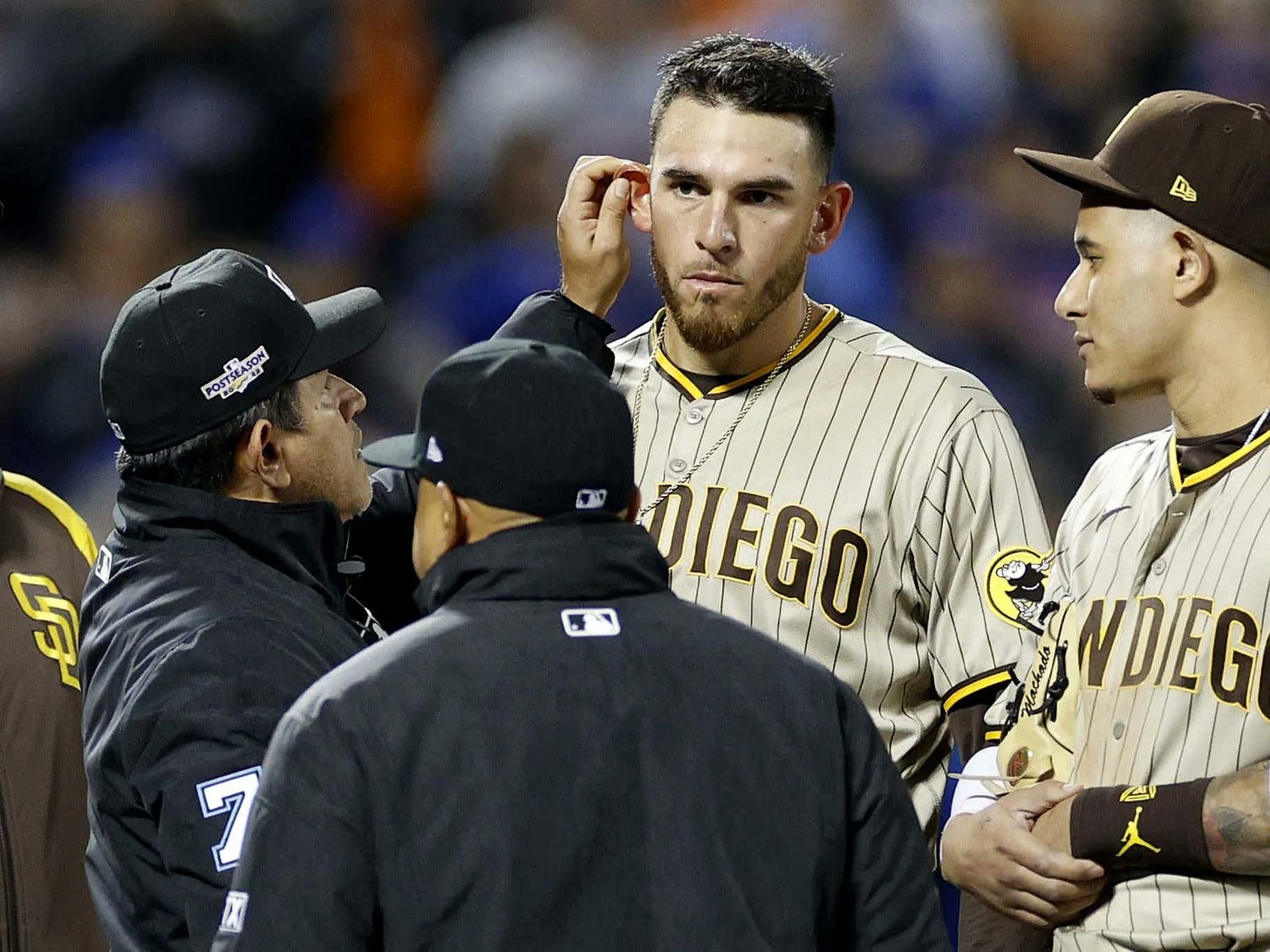On the Ear Check
So, in case you somehow missed the weird that happened in last night’s Wild Card game between the Mets and Padres: With Joe Musgrove shutting down the Mets lineup, and a photo floating around the Internet of Musgrove’s shiny ear, Mets manager Buck Showalter went out to the mound in the sixth inning and had the umpires check Musgrove’s ear for a foreign substance. They didn’t find anything, and Musgrove continued pitching for two more innings, before the San Diego bullpen continued holding the Mets to one measly hit over nine innings, winning the game 6-0.
The whole thing was pretty surreal, and it left me considering something about cheating and worker discipline, in baseball and everywhere. Namely, that investigations don’t eliminate suspicion; they raise it.
Theoretically, the fact that the umpires didn’t find anything on Musgrove’s ears, or anywhere else, should settle the issue of whether he was cheating. But of course it doesn’t. Some people spent the rest of the game speculating on how Musgrove could have been cheating in a way that eluded detection. But even aside from such skeptics, people will inevitably remember the check itself as incriminating evidence.
For one, the check raised the salience of things that were only really being discussed in certain corners of baseball Twitter: Musgrove’s shiny ears, his elevated spin rate, etc. And memory has a hard time holding on to uncertainty. Maybe people accept Musgrove’s innocence today, but as time passes, people will just remember that something was up with Musgrove that time he pitched against the Mets, and that suspicion will linger any time he has a strong performance.
Baseball has already seen examples of this, most recently with the Astros sign-stealing scandal, and most comprehensively with the steroid scandal of the 1990s/early aughts. In both cases, suspicion fell well outside where the investigations pointed. It doesn’t matter that Manfred’s report on the Astros said the cheating stopped in 2017 – some people will always doubt Jose Altuve’s legitimacy. And it doesn’t matter that most players never failed drug tests – some people will always assume home run hitters are on steroids.
This isn’t just cynicism at work. People understand that investigations aren’t perfect, and so it’s reasonable to think investigators will miss things. After all, what do umpires know about how ears are supposed to feel? So investigation can never be completely exonerative, and what stays with people is the fact that there was something amiss enough to trigger an investigation in the first place.
Maybe this is obvious, but I think people often ignore it. If you don’t have anything to hide, then why do you care if they look at you? Well, because the fact of being looked at is often enough to damage your reputation, and we should be honest about that whenever we discuss how investigations are going to unfold.
When baseball imposed its rules about stick stuff investigations last year, I was skeptical, but happy it seemed to go down without much turmoil.
But it was precisely this kind of situation I was worried about. Even though baseball now regularly checks pitchers, it has not removed the suspicion from the game. Quite the opposite, in fact. Now, when a pitcher’s spin rate is up slightly – as Musgrove’s was last night – everyone’s first thought is, I wonder if he is cheating.
So far this hasn’t really hurt anyone – although I suspect Musgrove is kind of pissed about it – but it’s only a matter of time before that suspicion gets selectively wielded against unpopular players as a way of disciplining the labor force.



